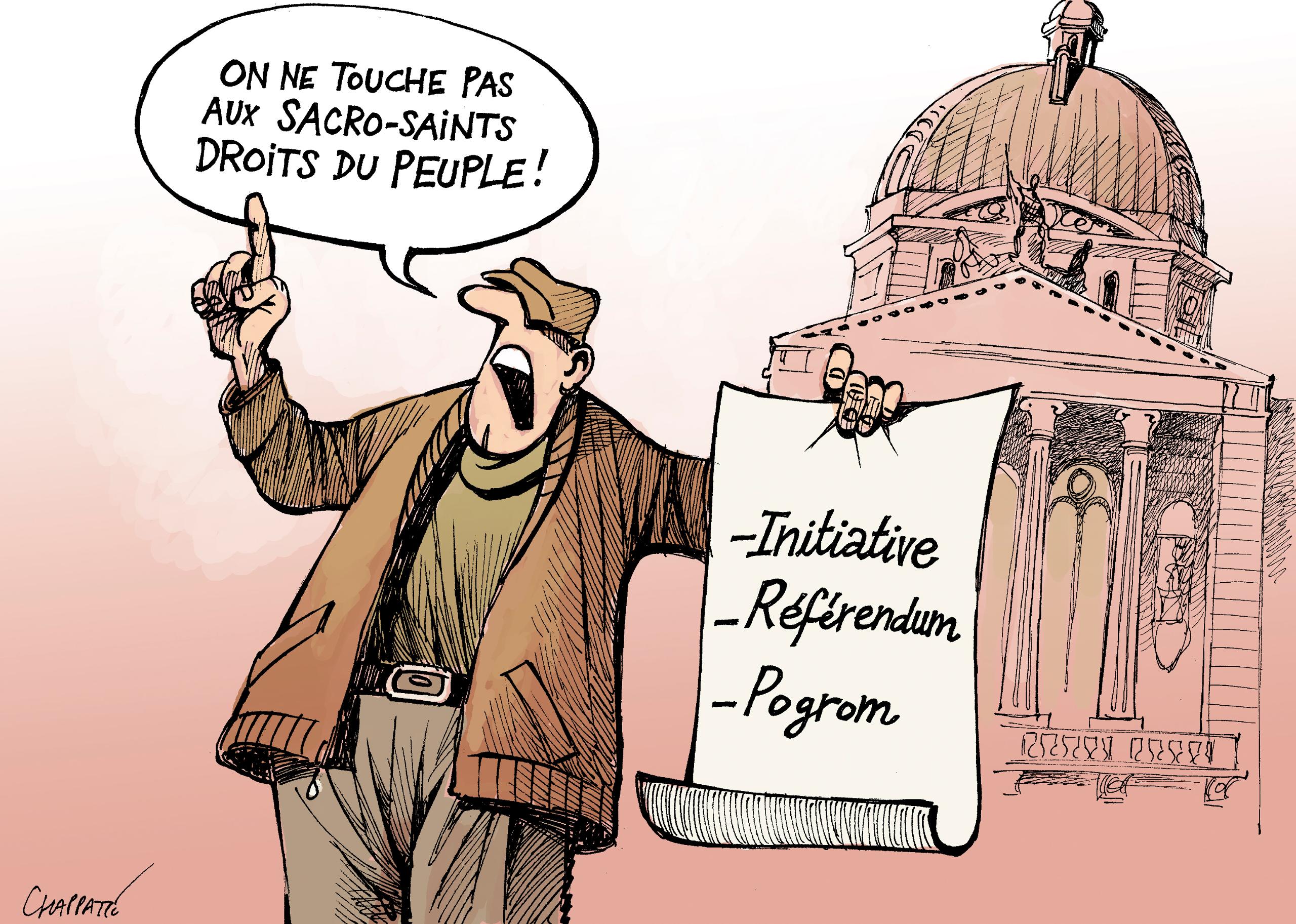
Chappatte laments end of political cartoons at New York Times

Swiss cartoonist Patrick Chappatte has expressed his sadness and concern at The New York Times’ decision to end political cartoons in its international edition. He was a regular contributor for years.
“I’m putting down my pen, with a sigh: that’s a lot of years of work undone by a single cartoon – not even mine – that should never have run in the best newspaper of the world,’ Chappatte wrote on his website on MondayExternal link.
‘In 20-plus years of delivering a twice-weekly cartoon for the International Herald Tribune first, and then The New York Times, and after receiving three OPC awards in that category, I thought the case for political cartoons had been made (in a newspaper that was notoriously reluctant to the form in past history.)”
On Monday, The New York Times announced that it would no longer publish daily political cartoonsExternal link in its international edition and ended its relationship with Chappatte and Heng Kim Song – both contract cartoonists.
It stopped running political cartoons after apologizing for publishing a syndicated political cartoonExternal link by another cartoonist in the opinion pages of its international print edition. It portrayed Prime Minister Benjamin Netanyahu of Israel as a dog wearing a Star of David on a collar. He was leading President Trump, drawn as a blind man wearing a skullcap.
Chappatte linked the newspaper’s decision to “widespread outrage” triggered by the controversial Nethanyahu caricature. But the newspaper saidExternal link it had been considering bringing the international edition into line with the domestic paper by ending daily political cartoons, and had decided to do so from July 1.
In his online post, the Swiss cartoonist expressed wider concerns.
He said: “I’m afraid this is not just about cartoons, but about journalism and opinion in general. We are in a world where moralistic mobs gather on social media and rise like a storm, falling upon newsrooms in an overwhelming blow. This requires immediate counter-measures by publishers, leaving no room for ponderation or meaningful discussions. Twitter is a place for furore, not debate. The most outraged voices tend to define the conversation, and the angry crowd follows in.”

More
From pogroms to political initiatives

In compliance with the JTI standards
More: SWI swissinfo.ch certified by the Journalism Trust Initiative
















![The four-metre-long painting "Sonntag der Bergbauern" [Sunday of the Mountain Farmers, 1923-24/26] had to be removed by a crane from the German Chancellery in Berlin for the exhibition in Bern.](https://www.swissinfo.ch/content/wp-content/uploads/sites/13/2025/12/01_Pressebild_KirchnerxKirchner.jpg?ver=cb688ed5)














You can find an overview of ongoing debates with our journalists here . Please join us!
If you want to start a conversation about a topic raised in this article or want to report factual errors, email us at english@swissinfo.ch.